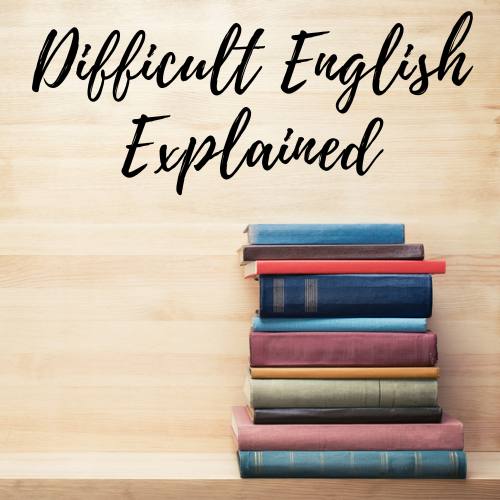Correctly using idiomatic expressions makes you sound more like the natives no matter what language you are trying to speak. Learning them can be tricky, though, because you often can’t guess the meaning of an idiom from the words. Trying to remember idioms as random sets of words is not very interesting or productive. The […]
Blog
Nautical Idioms in English, Part 2: What Do They Mean and Where Did They Come from?
Correctly using idiomatic expressions makes you sound more like the natives no matter what language you are trying to speak. Learning them can be tricky, though, because you often can’t guess the meaning of an idiom from the words. Trying to remember idioms as random sets of words is not very interesting or productive. The […]
Nautical Idioms in English, Part 1: What Do They Mean and Where Did They Come from?
Correctly using idiomatic expressions makes you sound more like the natives no matter what language you are trying to speak. Learning them can be tricky, though, because you often can’t guess the meaning of an idiom from the words. Trying to remember idioms as random sets of words is not very interesting or productive. The […]
What comes after a verb? “To do”, “do,” or “doing”? (Part 2)
Be sure that you read the first post in this series! You can find it at What comes after a verb? “To do”, “do,” or “doing”? (Part 1) Students regularly ask me, “How do I know what comes after a verb?” There is no simple answer to this question, but there are some guidelines. Some […]
What comes after a verb? “To do”, “do,” or “doing”? (Part 1)
Video link: https://youtu.be/9Cs4Zi4IZhw Students regularly ask me, “How do I know what comes after a verb?” This is a tough question, and it’s no surprise that most EFL textbooks don’t talk much about it. There aren’t any easy answers but at the same time, there are some guidelines. First, I will explain some words that I will […]
What’s the most efficient way to memorize material? (Part 1)
Video link: https://youtu.be/yV9qnQFgs40 When we learn anything new, including a foreign language, it’s necessary to memorize some basic information. This provides a foundation for everything else. So how can you memorize what you need without wasting a lot of time or feeling bored? Unfortunately, some of the strategies that we learned in school are not very […]
Two different roles for the word “to”
Click on this link for the video version: https://youtu.be/LOHHVorcoHE The word “to” causes a lot of confusion for English language learners. Why? “To” can play very different roles in English grammar. “To” can be a preposition, or it can be a verbal particle. It can play both of these roles in the same sentence. Here is […]
Adjectives that start with a-
This article covers a group of predicative adjectives in English. They begin with a-. Some examples are asleep, awake, and aware.
